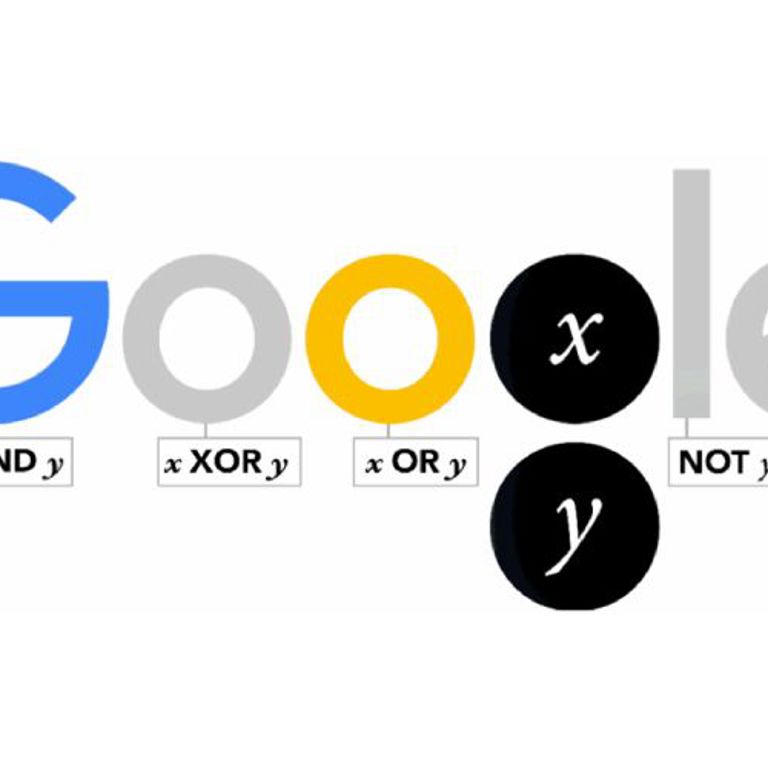The 10 best Computing Google Doodles of all time
To celebrate Google's 25th birthday at the end of this month, we picked out our favourite Google Doodles about Computing. Do you agree? Share your favourite Computing Google Doodle with #BeAFirebrand
Drum-roll...
10. Shakuntala Devi's 84th Birthday
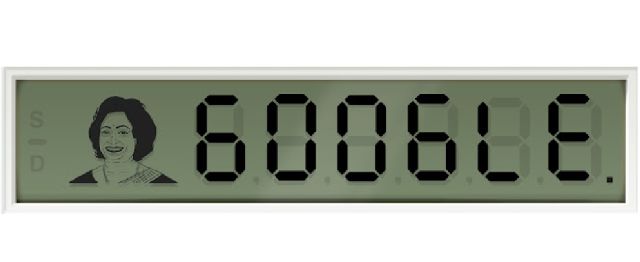
On 4 November 2013, Google celebrated the 84th birthday of Shakuntala Devi, popularly known as the "Human Computer" for her uncanny ability to mentally calculate.
On 18 June 1980, she multiplied two 13-digit numbers picked at random by the Department of Computing at Imperial College London. What's 7,686,369,774,870 times 2,465,099,745,779?
She correctly answered 18,947,668,177,995,426,462,773,730 in 28 seconds.
Writer Steven Smith commented, "The result is so far superior to anything previously reported that it can only be described as unbelievable." Needless to say, she's in The Guinness Book of World Records.
9. Celebrating Lotfi Zadeh
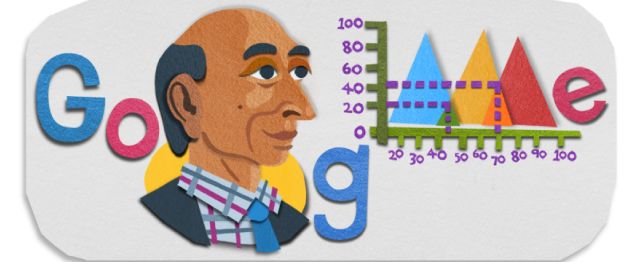
His name may not ring a bell, but “fuzzy logic” sure does!
On 30 November 1964, the Azerbaijani-American computer scientist, electrical engineer, and UC Berkeley professor, Lotfi Zadeh submitted the groundbreaking paper, “Fuzzy Sets.” The paper introduced the world to an innovative mathematical framework called “fuzzy logic” and has since been cited by scholars nearly 100,000 times.
The gist of his theory is an alternative to rigid 'black and white' parameters of traditional logic, allowing for more ambiguous or 'fuzzy' boundaries that more closely mimic the way humans see the world.
8. Nabil Ali Mohamed’s 82nd Birthday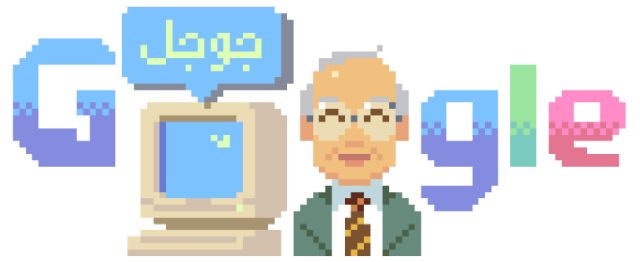
On 3 January 2020, Google Doodle celebrated the 82nd birthday of the Egyptian pioneer of Arabic language computing, Dr. Nabil Ali.
According to Google, "Dr. Nabil Ali’s innovations in the field of Computational Linguistics propelled the Arab world into the Information Age by creating programs that enabled computers to understand Arabic in digital form...For Dr. Nabil Ali, the digitization of Arabic, with its complex linguistic rules and morphology, was a way to connect Arabic speakers with the world."
In 2012, Dr. Nabil Ali won the prestigious Saudi Arabian Award, the King Faisal Prize for his pioneering contributions to Arabic Language and Literature.
7. Grace Hopper's 107th Birthday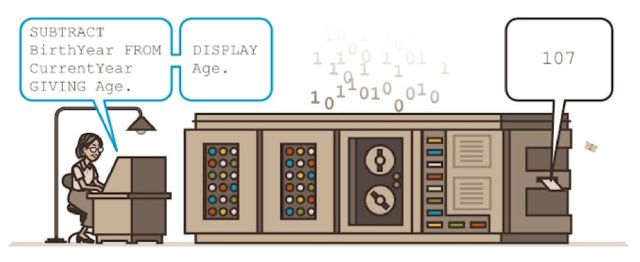
COBOL is an early high-level programming language still in use today. On 9 December 2013, Google celebrated COBOL's creator, Grace Hopper, an American computer scientist, mathematician, and US Navy Rear Admiral.
Dr Hopper was one of the first programmers of the Harvard Mark I computer and the first to devise the theory of machine-independent programming languages. The FLOW-MATIC programming language she created using this theory was later extended to create COBOL because Dr Hopper believed that programming language should be based on English words.
Dr Hopper received 40 honorary degrees from universities across the world during her lifetime. The U.S. Navy Arleigh Burke-class guided-missile destroyer USS Hopper was named after her, as was the Cray XE6 "Hopper" supercomputer at NERSC.
6. Ada Lovelace's 197th Birthday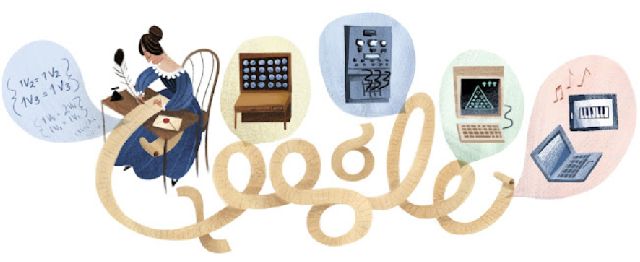
Augusta Ada King, countess of Lovelace, was the daughter of English Romantic poet George, Lord Byron. According to Google, her mother ensured Ada was educated in maths to balance out "the penchant for poetry and mania" she inherited from her father. Instead, Ada became a visionary of the computing age, considered by some to be the world’s first computer programmer.
Ada's associate, Charles Babbage, drew up designs for the first general-purpose computer, which he called the Analytic Engine, which he imagined to be a powerful calculator. Lovelace, however, anticipated the much more impressive possibilities for such a machine. She realized the engine could represent not just numbers, but generic entities like words and music. This intellectual leap is the foundation of how we experience computers today, from the words on this screen to the colors and shapes in this doodle.
In 1843, Ada published extensive notes on the Analytic Engine which included the first published sequence of operations for a computer, which she would have input to the Analytic Engine using punch cards, making her a tech trailblazer.
5. 115th Anniversary of the Discovery of the Antikythera Mechanism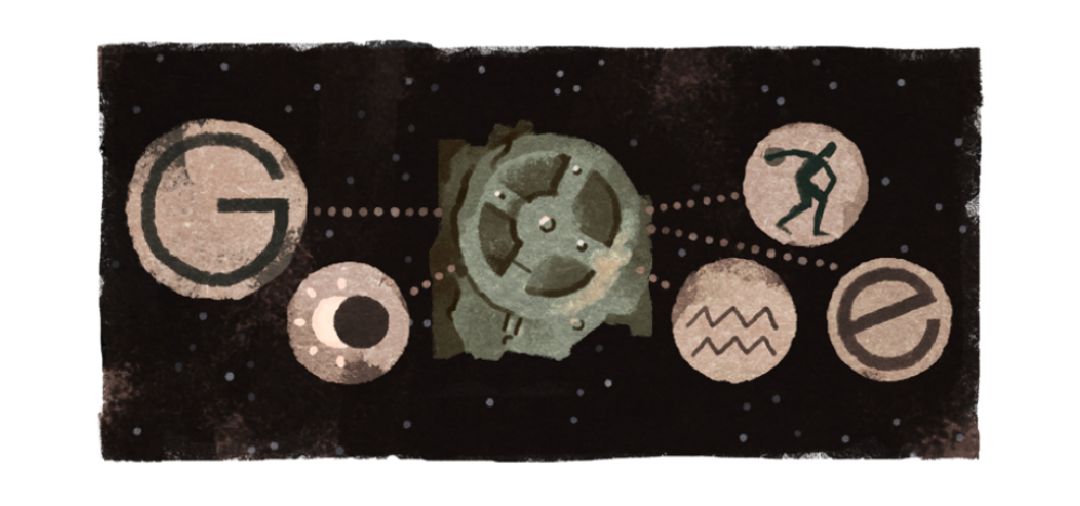
On 17 May 1902, a Greek archaeologist named Valerios Stais discovered the Mechanism amid artifacts from a Roman shipwreck at Antikythera.
The Mechanism is thought to be an ancient analog astronomical computer that used to track planetary positions, predict lunar and solar eclipses, and even signal the date of the Olympic Games.
According to Google, "Computer models based on 3-D tomography have revealed more than 30 sophisticated gears, housed in a wooden and bronze case the size of a shoebox...The mechanism was initially dated around 85 BC, but recent studies suggest it may be even older (circa 150 BC). The crank-powered device was way ahead of its time—its components are as intricate as those of some 18th-century clocks."
The mechanism can be seen at the National Archaeological Museum in Athens, Greece.
4. George Boole’s 200th Birthday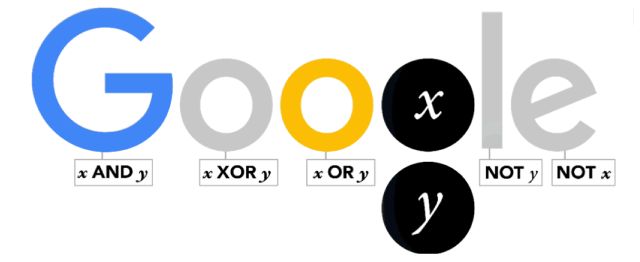
On 2 November 2015, Google celebrated the bicentennial of British mathematician George Boole, who taught that any values can be pared down to a binary system—yes or no, true or false, 1 or 0.
Google explain, "In 1849, Boole was appointed as the first Professor of Mathematics at University College Cork, where he pioneered developments in logic and mathematics. His beautiful binary 'Boolean' system was detailed in An Investigation of the Laws of Thought in 1854, which inevitably enabled revolutionary thinking in not just logic and math, but also engineering and computer science.
"As one of the most important scientists to have ever worked in Ireland, Boole effectively laid the foundations of the entire Information Age while working from UCC. So it’s fair to say that without George Boole, there’d be no Google!"
The interesting doodle by artist Leon Hong cycles through ANDs, ORs, NOTs, and XORs of the Boolean states for two discrete variables.
3. Alan Turing's 100th Birthday
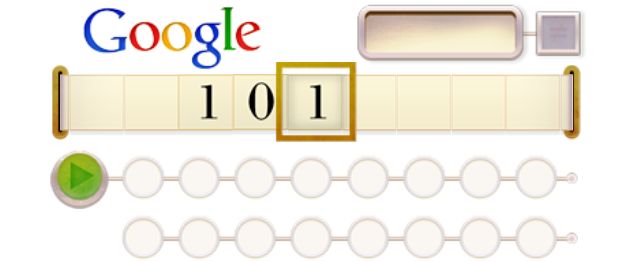
On 23 June 2012, Google celebrated Alan Turing's 100 birthday with a Google Doodle with open-sourced code.
"Before computers existed, Alan Turing invented a type of theoretical machine now called a Turing Machine, which formalized what it means to compute a number. Our doodle for his 100th birthday shows a live action Turing Machine with twelve interactive programming puzzles (hint: go back and play it again after you solve the first six!)," wrote Doodler Sophia Foster-Dimino.
According to Google, "Turing’s importance extends far beyond Turing Machines. His work deciphering secret codes drastically shortened World War II and pioneered early computer technology. He was also an early innovator in the field of Artificial Intelligence and came up with a way to test if computers could think, now known as the Turing Test. Besides this abstract work, he was down to earth; he designed and built real machines, even making his own relays and wiring up circuits. This combination of pure math and computing machines was the foundation of Computer Science."
2. Celebrating Claude Shannon’s 100th birthday
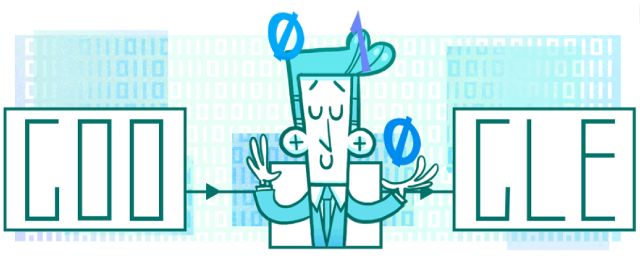
Claude Elwood Shannon (1916–2001) was an American mathematician, electrical engineer, computer scientist and cryptographer. According to Google, "The paper he wrote for his master’s thesis is the foundation of electronic digital computing. As a cryptographer for the U.S. Government during WWII, he developed the first unbreakable cipher. For fun, he tinkered with electronic switches, and one of his inventions—an electromechanic mouse he called Theseus—could teach itself to navigate a maze.
"If you’re thinking, 'that sounds a lot like Artificial Intelligence,' you’re right. He regularly brushed shoulders with Einstein and Alan Turing, and his work in electronic communications and signal processing—the stuff that earned him the moniker 'the father of information theory'—led to revolutionary changes in the storage and transmission of data." Wow!
1. 30th Anniversary of the World Wide Web
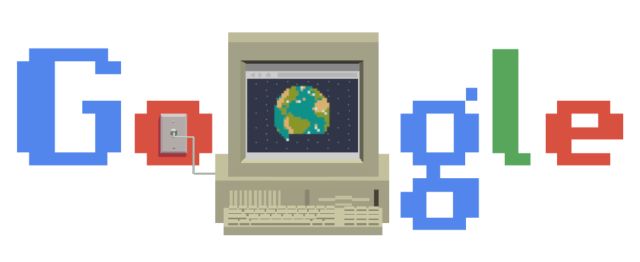
On 12 March 2019, the world celebrated the 30th anniversary of the World Wide Web!
According to Google Doodles, "Not to be confused with the internet, which had been evolving since the 1960s, the World Wide Web is an online application built upon innovations like HTML language, URL 'addresses,' and hypertext transfer protocol, or HTTP...
'There are very few innovations that have truly changed everything,' said Jeff Jaffe, CEO of the World Wide Web Consortium. “The Web is the most impactful innovation of our time.'”
Happy birthday, Google!
Explore Google with Firebrand
For the past 13 years in a row, we’ve been named one of the Top 20 IT Training Companies in the World.
At Firebrand, we take Google certification very seriously, making it a core component of our accelerated courses, Apprenticeships, and bespoke programmes.
Perhaps one of them is right for you?
